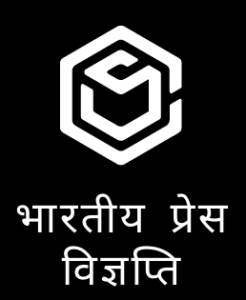India pacer Shanthakumar Sreesanth on Wednesday announced his retirement from all forms of domestic cricket. The 39-year-old fast bowler said he made the ‘right and honourable’ decision, saying it doesn’t bring him happiness, but he does not regret the call.
The senior pacer said he is open to playing franchise-based leagues across the world once the Board of Control for Cricket tin India (BCCI) gives him the go-ahead and being part of coaching set-ups in the near future. He added that he decided to retire from domestic cricket to make way for youngsters in the Kerala domestic set-up.
Sreesanth played 27 Tests, 53 ODIs and 10 T20Is for India between 2005 and 2011. He was part of the T20 World Cup-winning team under MS Dhoni in 2007 and the 50-over World Cup-winning side in 2011. The Kerala fast bowler last played for India in 2011. Sreesanth had served a reduced life ban, which expired in September 2020, for alleged involvement in a spot-fixing scandal in IPL 2013.
A fiery fast bowler, Sreesanth picked up 169 wickets in international cricket and was part of several memorable victories, including the T20 and the 50-over World Cup.
Sreesanth open to coaching role, stints in foreign leagues
“Thank you for supporting me, especially on my comeback to domestic cricket. I am retiring from first-class, all forms of cricket in domestic cricket. Looking forward to being part of maybe a coaching set-up to help the youngsters. If possible, play leagues across the globe once the BCCI gives me permission,” Sreesanth said in a video message, addressing his fans on Twitter.
https://t.co/eTysevBlxK
— Sreesanth (@sreesanth36) March 9, 2022
“I am completely fit but one of the reasons (for retiring) is the youngsters. I got an opportunity to play for my state and my country when another personality retired. I am very confident that Kerala cricket and Indian cricket is in the right hands,” he added.
Sreesanth, who returned to play Ranji Trophy after a gap of nine years, last played competitive cricket when he represented Kerala in the premier domestic tournament against Meghalaya in Saurashtra in February 2022. Sreesanth also played Vijay Hazare Trophy for Kerala last year.
The World Cup-winning pacer had entered the Indian Premier League auction after his ban was overturned but he was not part of the shortlist last year and did not go under the hammer at the IPL 2022 mega auction earlier in February.
Sreesanth took to social media alto announce his decision with a series of posts on Wednesday.
“Today is a difficult day for me, but it is also a day of reflection and gratitude. Playing for Ecc, Ernakulam district, various diff. League and tournament teams, Kerala state cricket association, BCCI, Warwickshire county cricket team, Indian airlines cricket team, and ICC (sic),” Sreesanth said.
For the next generation of cricketers..I have chosen to end my first class cricket career. This decision is mine alone, and although I know this will not bring me happiness, it is the right and honorable action to take at this time in my life. I ve cherished every moment .
— Sreesanth (@sreesanth36) March 9, 2022
“During my 25 years career as a Cricket player, I’ve always pursued success and winning cricket games, while preparing and training with the highest standards of competition, passion and perseverance. It has been an honor to represent my family,” he added.
“For the next generation of cricketers..I have chosen to end my first class cricket career. This decision is mine alone, and although I know this will not bring me happiness, it is the right and honorable action to take at this time in my life. I ve cherished every moment.”
Notably, Sreesanth was acquitted of all charges in the spot-fixing scandal in 2015 by a special court, after which the Kerala High Court quashed his life ban in 2018. However, a division bench of the High Court restored the ban, after which Sreesanth approached the Supreme Court. While the apex court upheld his guilt, it recommended the BCCI reduce the punishment term.
In August 2019, BCCI ombudsman DK Jain reduced the life ban to 7 years, which ended in September 2020.




